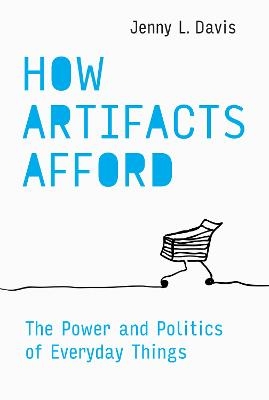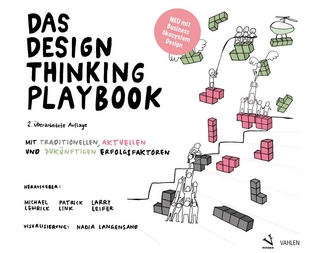
How Artifacts Afford
The Power and Politics of Everyday Things
Seiten
2020
MIT Press (Verlag)
978-0-262-04411-0 (ISBN)
MIT Press (Verlag)
978-0-262-04411-0 (ISBN)
Technological affordances mediate between the features of a technology and the outcomes of engagement with that technology. The concept of affordances, which migrated from psychology to design with Donald Norman's influential 1988 book, The Design of Everyday Things, offers a useful analytical tool in technology studies-but, Jenny Davis argues in How Artifacts Afford, it is in need of a conceptual update. Davis provides just such an update, introducing the mechanisms and conditions framework, which offers both a vocabulary and necessary critical perspective for affordance analyses.
The mechanisms and conditions framework shifts the question from what objects afford to how objects afford, for whom, and under what circumstances. Davis shows that through this framework, analyses can account for the power and politics of technological artifacts. She situates the framework within a critical approach that views technology as materialized action. She explains how request, demand, encourage, discourage, refuse, and allow are mechanisms of affordance, and shows how these mechanisms take shape through variable conditions-perception, dexterity, and cultural and institutional legitimacy.
Putting the framework into action, Davis identifies existing methodological approaches that complement it, including critical technocultural discourse analysis (CTDA), app feature analysis, and adversarial design. In today's rapidly changing sociotechnical landscape, the stakes of affordance analyses are high. Davis's mechanisms and conditions framework offers a timely theoretical reboot, providing tools for the crucial tasks of both analysis and design.
The mechanisms and conditions framework shifts the question from what objects afford to how objects afford, for whom, and under what circumstances. Davis shows that through this framework, analyses can account for the power and politics of technological artifacts. She situates the framework within a critical approach that views technology as materialized action. She explains how request, demand, encourage, discourage, refuse, and allow are mechanisms of affordance, and shows how these mechanisms take shape through variable conditions-perception, dexterity, and cultural and institutional legitimacy.
Putting the framework into action, Davis identifies existing methodological approaches that complement it, including critical technocultural discourse analysis (CTDA), app feature analysis, and adversarial design. In today's rapidly changing sociotechnical landscape, the stakes of affordance analyses are high. Davis's mechanisms and conditions framework offers a timely theoretical reboot, providing tools for the crucial tasks of both analysis and design.
Jenny L. Davis is a sociologist at the Australian National University.
| Erscheinungsdatum | 11.08.2020 |
|---|---|
| Sprache | englisch |
| Maße | 137 x 203 mm |
| Themenwelt | Informatik ► Software Entwicklung ► User Interfaces (HCI) |
| Naturwissenschaften | |
| Sozialwissenschaften ► Kommunikation / Medien ► Medienwissenschaft | |
| ISBN-10 | 0-262-04411-0 / 0262044110 |
| ISBN-13 | 978-0-262-04411-0 / 9780262044110 |
| Zustand | Neuware |
| Informationen gemäß Produktsicherheitsverordnung (GPSR) | |
| Haben Sie eine Frage zum Produkt? |
Mehr entdecken
aus dem Bereich
aus dem Bereich
Mit traditionellen, aktuellen und zukünftigen Erfolgsfaktoren
Buch | Softcover (2018)
Franz Vahlen (Verlag)
29,80 €
was alle wissen sollten, die Websites und Apps entwickeln
Buch | Hardcover (2024)
Rheinwerk (Verlag)
39,90 €
Lean UX und Design Thinking: Teambasierte Entwicklung …
Buch | Hardcover (2022)
dpunkt (Verlag)
34,90 €


